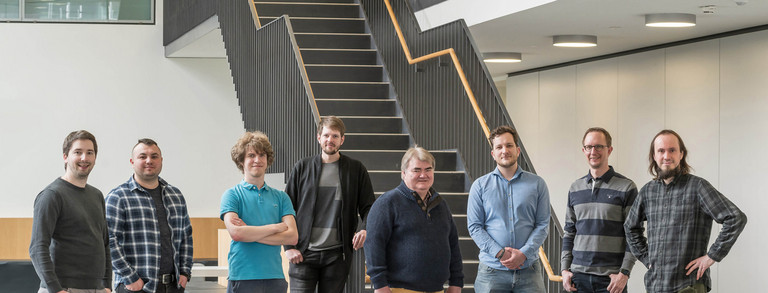Prof. Dr. Günter Rudolph
Aktuelle Informationen:
http://ls11-www.cs.tu-dortmund.de/people/rudolph/
Curriculum Vitae
11/1996 Promotion in Informatik (Dr. rer. nat.), Universität Dortmund
04/1991 Hauptdiplom in Informatik (Diplom-Informatiker), Universität Dortmund
04/1987 Vordiplom in Informatik (cand. inform.), Universität Karlsruhe (TH)
06/1983 Allgemeine Hochschulreife (Abitur), Ruhr-Gymnasium Witten
04/2005 - heute Universitäts-Professor, Fakultät für Informatik, TU Dortmund
06/2001 - 03/2005 Produkt- und Softwareentwickler, Parsytec AG, Aachen
01/1997 - 05/2001 Wissenschaftlicher Mitarbeiter, Sonderforschungsbereich 531, Universität Dortmund
02/1994 - 12/1996 Wissenschaftlicher Mitarbeiter, Informatik Centrum Dortmund (ICD)
05/1991 - 01/1994 Wissenschaftlicher Mitarbeiter, Fachbereich Informatik, Universität Dortmund

